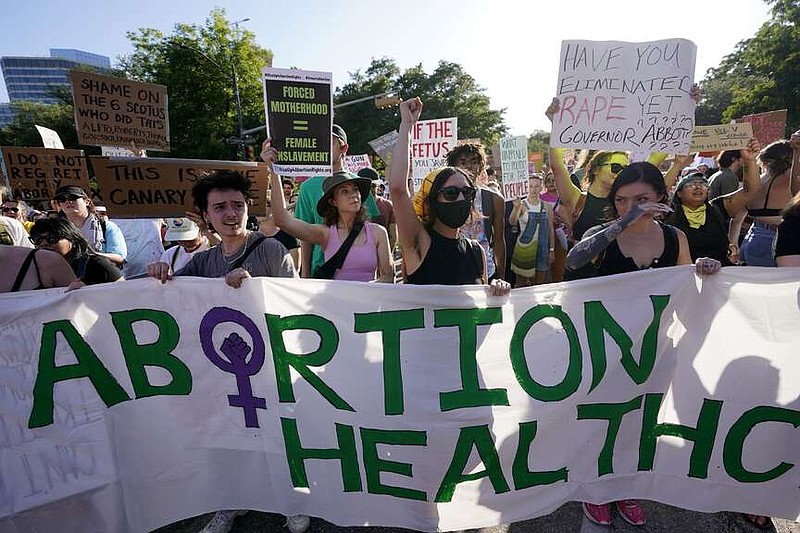AUSTIN, Texas -- A pregnant Texas woman whose fetus has a fatal condition left the state to get an abortion elsewhere before the state Supreme Court on Monday rejected her unprecedented challenge of one of the most restrictive bans in the U.S.
Kate Cox, a 31-year-old mother of two, had spent nearly a week seeking court permission in Texas to end her pregnancy, but her attorney said she could not wait any longer and left the state. Her baby has a condition known as trisomy 18, which has low survival rates, and her lawsuit argued that continuing the pregnancy jeopardized both her health and ability to have more children.
Texas' abortion ban makes narrow exceptions when the life of the mother is in danger but not for fetal anomalies. Republican Attorney General Ken Paxton argued that Cox had not shown that any of the complications in her pregnancy rose to the level of threatening her life.
"Her health is on the line. She's been in and out of the emergency room and she couldn't wait any longer," said Nancy Northup, president and CEO of the Center for Reproductive Rights, which was representing Cox.
The organization did not disclose where Cox went. On Monday, she would have been 20 weeks and six days pregnant.
Hours after Cox's attorneys announced she had left Texas, the state Supreme Court issued its decision that ruled against Cox. It came three days after the court temporarily halted a lower judge's ruling that gave Cox permission to get an abortion.
"No one disputes that Ms. Cox's pregnancy has been extremely complicated. Any parents would be devastated to learn of their unborn child's trisomy 18 diagnosis," the court wrote. "Some difficulties in pregnancy, however, even serious ones, do not pose the heightened risks to the mother the exception encompasses."
Cox, who lives in the Dallas area, was believed to be the first woman in the U.S. to ask a court for permission for an abortion since Roe v. Wade was overturned last year. Her lawsuit quickly became a high-profile test of bans in Texas and a dozen other GOP-controlled states, where abortion is prohibited at nearly all stages of pregnancy.
Days after Cox filed her lawsuit, a pregnant woman in Kentucky also asked a court to allow an abortion. There has been no ruling yet in that case.
In Texas, Paxton mounted an aggressive defense to try to prevent Cox from having an abortion. He sent three Houston hospitals letters warning of legal consequences -- both criminal and civil -- if they allowed Cox's physician to provide the procedure. He also argued that Cox had not demonstrated that her life was at imminent risk, including noting that she was sent home after her multiple visits to emergency rooms.
Cox had cesarean surgeries during her first two pregnancies. Her lawsuit argued that inducing labor would carry a risk of a uterine rupture because of her prior C-sections, and that another one at full term would would endanger her ability to carry another child. But Paxton contended those arguments still fell short.
"Rather, the only question is whether Ms. Cox's condition meets the exception, regardless of how long the child is expected to live," Paxton's office told the court in a filing over the weekend.
Doctors told Cox that her fetus has a condition known as trisomy 18, which is when a baby has an extra copy of chromosome 18. The diagnosis has a very high likelihood of miscarriage or stillbirth, and low survival rate. Doctors told Cox that inducing labor or carrying the baby to term could jeopardize her ability to have another child.
Trisomy 18 occurs in approximately 1 in 2,500 diagnosed pregnancies, according to the American College of Obstetricians and Gynecologists and the Society for Maternal-Fetal Medicine. There is no live birth in about 70% of pregnancies involving the diagnosis that proceed past 12 weeks gestational age, according to a legal filing that the two groups submitted to the court.
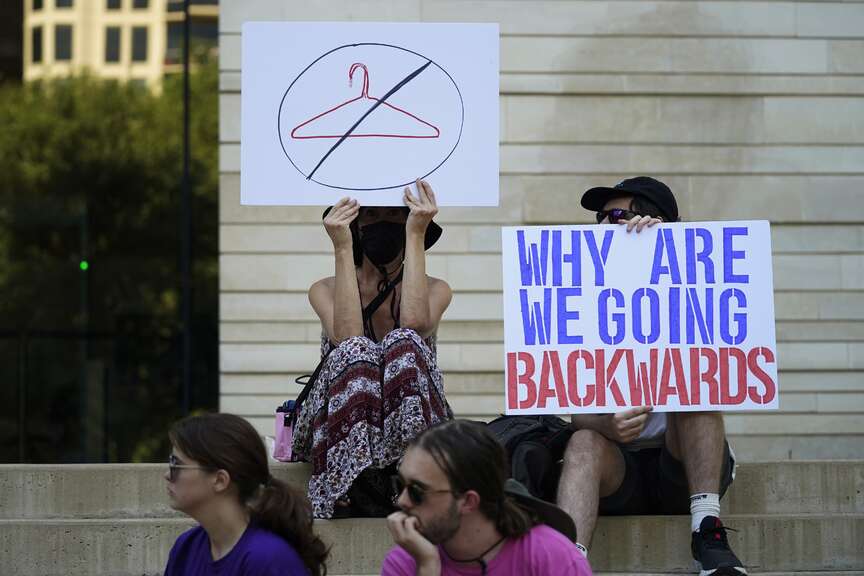 FILE - Demonstrators gather at the federal courthouse in Austin, Texas, following the U.S. Supreme Court's decision to overturn Roe v. Wade, June 24, 2022. A pregnant Texas woman whose fetus has a fatal diagnosis asked a court Tuesday, Dec. 5, 2023, to let her terminate the pregnancy, bringing what her attorneys say is the first lawsuit of its kind in the U.S. since Roe v. Wade was overturned last year. (AP Photo/Eric Gay, File)
FILE - Demonstrators gather at the federal courthouse in Austin, Texas, following the U.S. Supreme Court's decision to overturn Roe v. Wade, June 24, 2022. A pregnant Texas woman whose fetus has a fatal diagnosis asked a court Tuesday, Dec. 5, 2023, to let her terminate the pregnancy, bringing what her attorneys say is the first lawsuit of its kind in the U.S. since Roe v. Wade was overturned last year. (AP Photo/Eric Gay, File)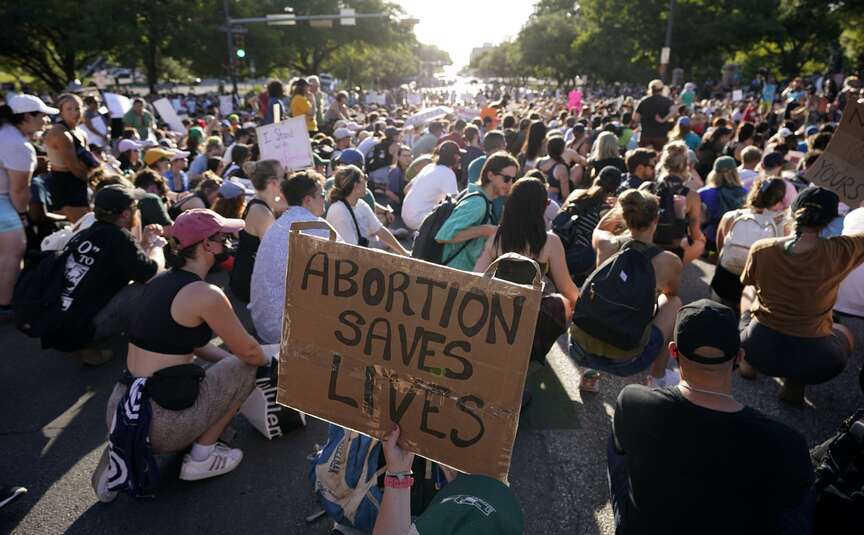 FILE - Demonstrators march and gather near the state capitol following the Supreme Court's decision to overturn Roe v. Wade, Friday, June 24, 2022, in Austin, Texas. A pregnant Texas woman whose fetus has a fatal diagnosis asked a court Tuesday, Dec. 5, 2023, to let her terminate the pregnancy, bringing what her attorneys say is the first lawsuit of its kind in the U.S. since Roe v. Wade was overturned last year. (AP Photo/Eric Gay, File)
FILE - Demonstrators march and gather near the state capitol following the Supreme Court's decision to overturn Roe v. Wade, Friday, June 24, 2022, in Austin, Texas. A pregnant Texas woman whose fetus has a fatal diagnosis asked a court Tuesday, Dec. 5, 2023, to let her terminate the pregnancy, bringing what her attorneys say is the first lawsuit of its kind in the U.S. since Roe v. Wade was overturned last year. (AP Photo/Eric Gay, File)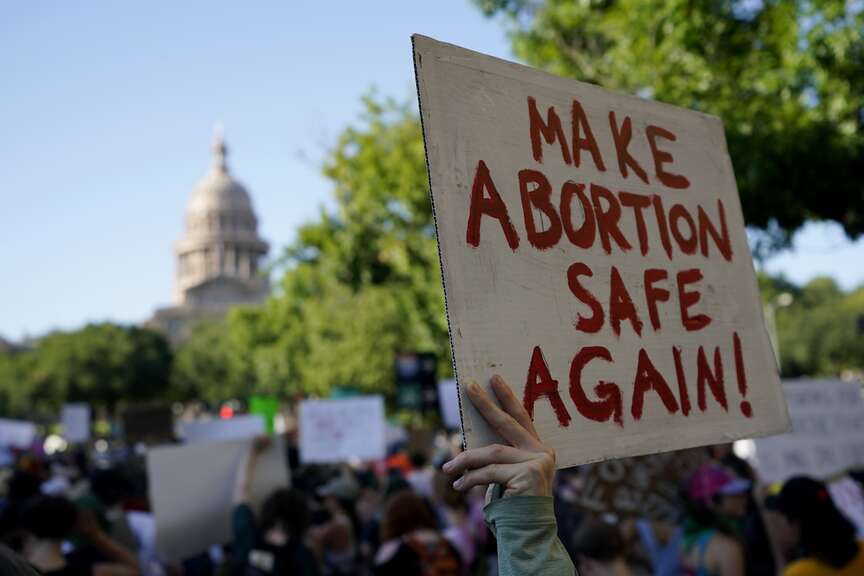 FILE - Demonstrators march and gather near the state capitol following the Supreme Court's decision to overturn Roe v. Wade, Friday, June 24, 2022, in Austin, Texas. A pregnant Texas woman whose fetus has a fatal diagnosis asked a court Tuesday, Dec. 5, 2023, to let her terminate the pregnancy, bringing what her attorneys say is the first lawsuit of its kind in the U.S. since Roe v. Wade was overturned last year. (AP Photo/Eric Gay, File)
FILE - Demonstrators march and gather near the state capitol following the Supreme Court's decision to overturn Roe v. Wade, Friday, June 24, 2022, in Austin, Texas. A pregnant Texas woman whose fetus has a fatal diagnosis asked a court Tuesday, Dec. 5, 2023, to let her terminate the pregnancy, bringing what her attorneys say is the first lawsuit of its kind in the U.S. since Roe v. Wade was overturned last year. (AP Photo/Eric Gay, File)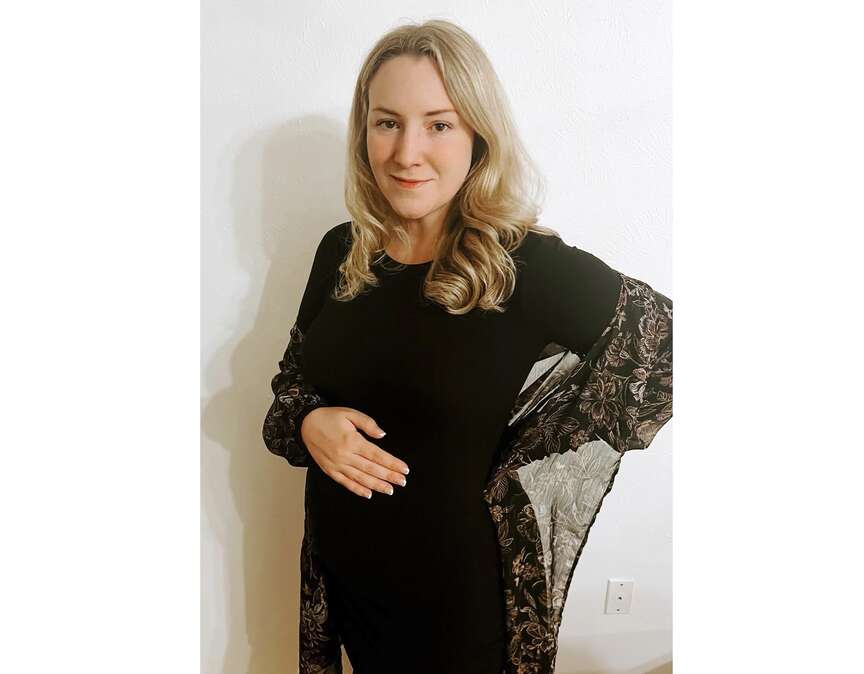 This image provided by Kate Cox shows Kate Cox. A Texas judge has given the pregnant woman whose fetus had a fatal diagnosis permission to get an abortion in an unprecedented challenge to the state's ban that took effect after Roe v. Wade was overturned last year. It was unclear Thursday, Dec. 7, 2023 how quickly or whether Kate Cox, a 31-year-old mother of two from the Dallas area, will be able to obtain an abortion. State District Judge Maya Guerra Gamble says she will grant a temporary restraining order that will allow Cox to have an abortion. (Kate Cox via AP)
This image provided by Kate Cox shows Kate Cox. A Texas judge has given the pregnant woman whose fetus had a fatal diagnosis permission to get an abortion in an unprecedented challenge to the state's ban that took effect after Roe v. Wade was overturned last year. It was unclear Thursday, Dec. 7, 2023 how quickly or whether Kate Cox, a 31-year-old mother of two from the Dallas area, will be able to obtain an abortion. State District Judge Maya Guerra Gamble says she will grant a temporary restraining order that will allow Cox to have an abortion. (Kate Cox via AP)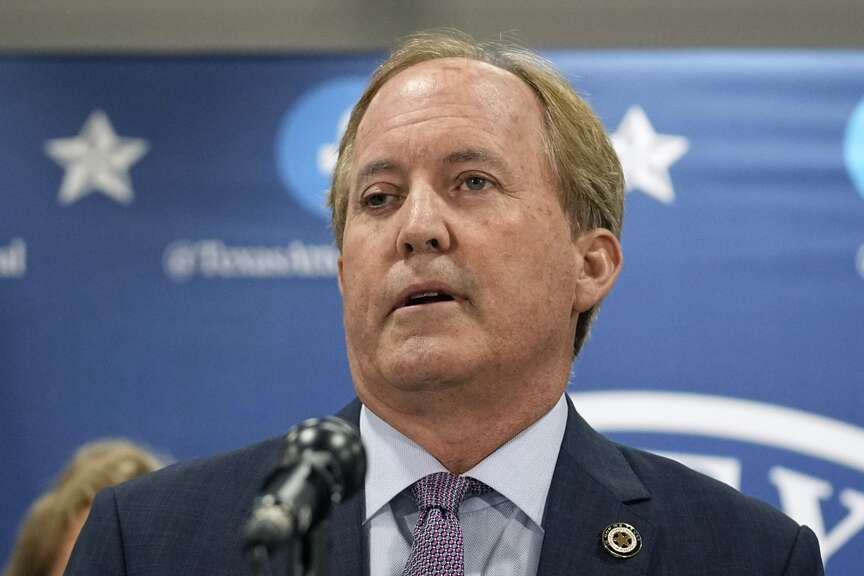 FILE - Texas state Attorney General Ken Paxton makes a statement at his office, May 26, 2023, in Austin, Texas. The Texas Supreme Court on Friday, Dec. 8, put on hold a judge's ruling that approved an abortion for a pregnant woman whose fetus has a fatal diagnosis, throwing into limbo an unprecedented challenge to one of the most restrictive bans in the U.S. (AP Photo/Eric Gay, File)
FILE - Texas state Attorney General Ken Paxton makes a statement at his office, May 26, 2023, in Austin, Texas. The Texas Supreme Court on Friday, Dec. 8, put on hold a judge's ruling that approved an abortion for a pregnant woman whose fetus has a fatal diagnosis, throwing into limbo an unprecedented challenge to one of the most restrictive bans in the U.S. (AP Photo/Eric Gay, File)